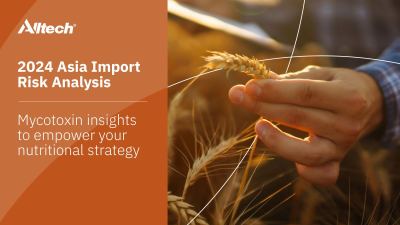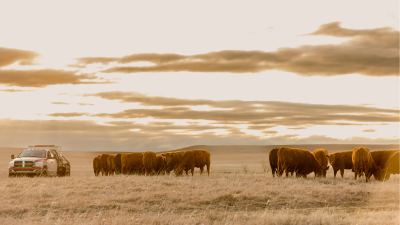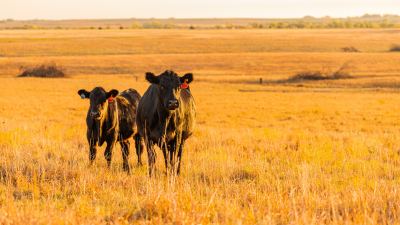Calving considerations: 3 tips for early nutrition

Proper nutrition and gut health are crucial during the first weeks of the calf’s life.
In a recent webinar, Dr. Shelby Roberts, a postdoctoral research fellow at the Alltech Center for Animal Nutrigenomics and Applied Animal Nutrition, used her knowledge of ruminant health and immunology to take a closer look at calf gut health and the importance of nutrition during the first weeks of the calf’s life. Here are a few points to keep in mind in the midst of spring calving.
1. The importance of colostrum for the calf’s immune system
Colostrum is the mother’s first milk and the calf’s first source of immunity and nutrients. Antibodies from colostrum protect calves until their immune systems are fully functional. However, the first couple weeks after birth can be a period of elevated risk as the maternal antibodies disappear and the calf’s immunity is maturing, as shown in the diagram.

2. The balancing act between pathogenic and non-pathogenic bacteria
Good bacteria (e.g., lactobacilli, bifidobacteria) are constantly fighting to keep the pathogenic bacteria (e.g., E. coli, Salmonella) in check, but the immune system is also fighting the pathogenic bacteria. The immune system and the good bacteria work together to keep the cow healthy and to suppress the pathogenic bacteria. When antibiotics are used, this clears out the pathogenic bacteria AND the good bacteria. While recolonizing the gut, the cow is at risk for pathogenic bacteria recolonizing at a quicker rate than the good bacteria, leaving the immune system as the last and only line of defense when antibiotics are removed.
3. The new research behind Bio-Mos® is here
Since the 1980s, Alltech has been conducting studies on its signature product, Bio-Mos. The calf research on Bio-Mos has shown the following results:
- Maintenance of gastrointestinal health
- Alteration of intestinal microbial populations
- Stimulation of immune activity
- Stimulation of the natural defenses of the animal
When it comes to receiving diets, Bio-Mos has also been tested. In a study conducted in a commercial feedlot in Southern Alberta in Canada, 902 mixed-breed, newly weaned beef cattle were split into two groups, one fed a control and one supplemented with Bio-Mos. Cattle fed Bio-Mos showed improved average daily gain and maintained a healthy immune response.















